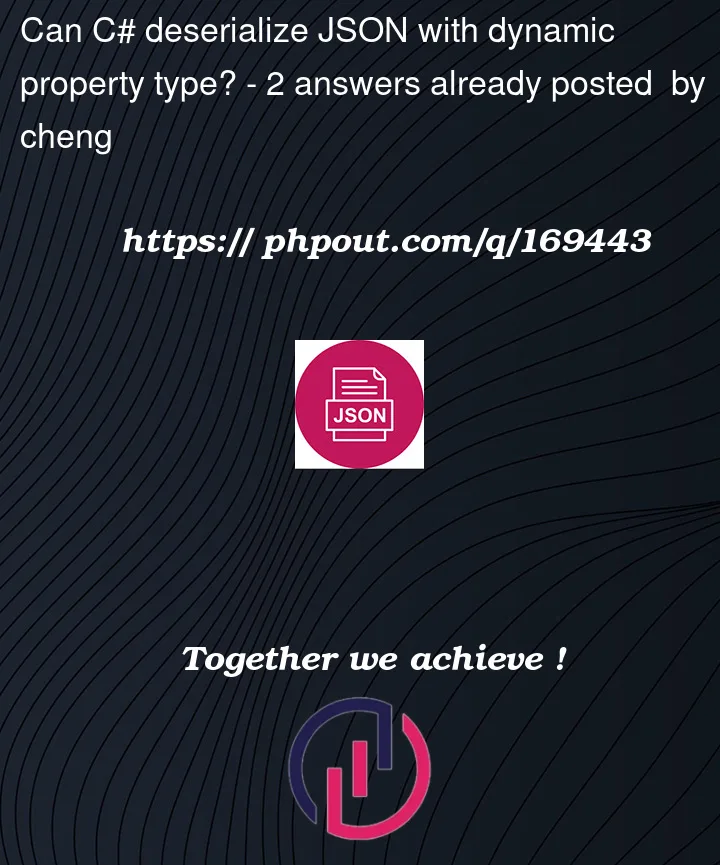The API currently return two types of json string (the type field always be string but the data field may be string or list or int):
For example Type 1:
{
"type": "error",
"data": "error message"
}
Type 2:
{
"type": "success",
"data": [
{
"id": 1,
"title": "tortor at auctor urna nunc",
"content": "Lorem ipsum dolor sit amet, consectetur adipiscing elit."
},
{
"id": 2,
"title": "gravida rutrum quisque non tellus",
"content": "Lorem ipsum dolor sit amet, consectetur adipiscing elit."
}
]
}
I have the following class for mapping the json string:
class ResponseData
{
[JsonPropertyName("type")]
public string Type { get; set; }
[JsonPropertyName("data")]
public string Data { get; set; }
}
I would like to deserialize the json to ResponseData and print out the text in data field, for example:
var response = await httpClient.GetAsync(url);
var responseData = await response.Content.ReadFromJsonAsync<ResponseData>();
Debug.WriteLine(responseData.Data);
If the API returns the json type 1, the code works fine. but if it returns the json type 2, it throws the following error message:
Exception thrown: 'System.Text.Json.JsonException' in System.Private.CoreLib.dll
The JSON value could not be converted to System.String. Path: $.data | LineNumber: 0 | BytePositionInLine: 32.: Error
Any idea to solve this issue?
Thanks.
I would expect if the API returns the json type 2, at least the following json string can be saved into responseData.Data as string:
"[
{
"id": 1,
"title": "tortor at auctor urna nunc",
"content": "Lorem ipsum dolor sit amet, consectetur adipiscing elit."
}
]"
so that I can deserialize the responseData.Data json string into another object
var dataList = JsonSerializer.Deserialize<DataList>(responseData.Data);




2
Answers
The problem is in both cases you’re trying to deserialize "data" to a string (because you’ve defined the property Data in your ResponseData class to be of type string), but in the second case "data" is a json array, which can’t be automatically converted to a string.
I’m not sure your design is the optimal approach in the first place if I may say so, but if you want to get it working as is, more or less, you could change Data’s type to obejct.
Here is a quick demo of the idea using Newtonsoft:
you can try this code
classes